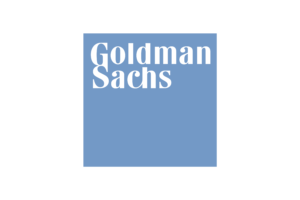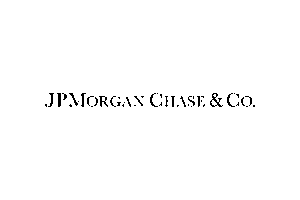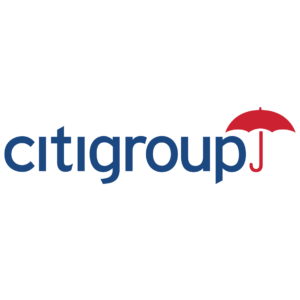Morgan Stanley is a leading global financial services firm that provides investment banking, securities, wealth management, and investment management services. Founded in 1935 by Henry S. Morgan and Harold Stanley, the firm has evolved into one of the most prestigious and influential financial institutions in the world. Headquartered in New York City, Morgan Stanley operates in over 41 countries and has a workforce of more than 75,000 employees, serving a diversified group of clients including corporations, governments, financial institutions, and individuals.
The origin of Morgan Stanley dates back to the Glass-Steagall Act of 1933, which mandated the separation of commercial banking from investment banking. This led to the establishment of Morgan Stanley, which began operations on September 16, 1935. Initially, the firm focused on securities underwriting and mergers and acquisitions, quickly establishing itself as a dominant player in these areas. One of its earliest significant transactions was the public offering of $100 million in debt for General Electric, setting a benchmark for future deals.
Over the decades, Morgan Stanley expanded its services and geographic reach through strategic mergers and acquisitions. The merger with Dean Witter Discover & Co. in 1997 was a landmark event, combining Morgan Stanley’s institutional business with Dean Witter’s retail brokerage and credit services, thereby creating a comprehensive financial services firm. This merger significantly enhanced Morgan Stanley’s capabilities in wealth management and broadened its client base.
Morgan Stanley operates through three main business divisions:
- Institutional Securities: This division includes investment banking, sales and trading, and other institutional activities. Morgan Stanley is a market leader in providing financial advisory services for mergers and acquisitions, equity and debt capital markets, and restructuring. The sales and trading segment offers a range of products and services, including equities, fixed income, commodities, and foreign exchange.
- Wealth Management: This division caters to individual investors and small-to-medium-sized businesses. Morgan Stanley Wealth Management offers comprehensive financial planning, investment advisory, and brokerage services. With the acquisition of Smith Barney from Citigroup in 2009, Morgan Stanley significantly bolstered its wealth management operations, creating one of the largest wealth management platforms globally.
- Investment Management: This division provides asset management products and services in equity, fixed income, alternative investments, and private equity. Morgan Stanley Investment Management serves institutional and retail clients worldwide, managing assets across a diverse range of strategies and geographies.
Morgan Stanley has been at the forefront of innovation and strategic initiatives aimed at maintaining its competitive edge. The firm has heavily invested in technology to enhance its trading platforms, risk management systems, and client service capabilities. In recent years, Morgan Stanley has placed a strong emphasis on sustainable investing and environmental, social, and governance (ESG) factors, reflecting the growing importance of these issues to investors and society.
Morgan Stanley’s financial performance has been robust, consistently delivering strong revenue and profit growth. For the fiscal year 2023, the firm reported revenues of approximately $54.14 billion. The Institutional Securities division remains the largest contributor to revenue, followed by Wealth Management and Investment Management.
Like all major financial institutions, Morgan Stanley faces several challenges. These include regulatory changes, market volatility, and increasing competition from both traditional financial institutions and fintech companies. However, the firm’s strong brand, diversified business model, and strategic focus on innovation and sustainability position it well to navigate these challenges and continue its legacy of growth and leadership in the financial services industry.
Morgan Stanley’s legacy is built on a foundation of trust, innovation, and excellence. With its extensive global reach, diverse range of services, and unwavering commitment to client success, Morgan Stanley continues to be a pillar of the global financial system. As the firm looks to the future, it remains dedicated to upholding its values and adapting to the evolving landscape of the financial industry, ensuring it remains a leader in the years to come.
Top Competitors of Morgan Stanley
Morgan Stanley, a global financial services firm, faces competition from several major financial institutions. Here’s a detailed look at the top eight competitors:
1. Goldman Sachs

Website – https://www.goldmansachs.com/
Goldman Sachs is a formidable competitor to Morgan Stanley due to its strong investment banking division and extensive asset management operations. Goldman Sachs excels in mergers and acquisitions (M&A), underwriting, and trading, often leading the market in these areas. Its ability to execute large, complex transactions gives it a competitive edge in investment banking. Additionally, Goldman Sachs’ significant presence in asset management, with a diverse portfolio of investments, enhances its competitive position against Morgan Stanley, which also has a robust asset management division.
Moreover, Goldman Sachs’ global reach and continuous innovation in financial technology strengthen its market position. The firm’s expansive international operations allow it to tap into diverse markets and offer comprehensive financial services worldwide. Innovations such as the Marcus digital banking platform and its active involvement in fintech developments further bolster its competitiveness. While Morgan Stanley also focuses on technology and global operations, Goldman Sachs’ leadership in investment banking and proactive approach to digital transformation provide a strong competitive advantage.
Summary Table :
| Aspect | Goldman Sachs | Morgan Stanley |
|---|---|---|
| Primary Strengths | Investment banking, Asset management, Global reach | Wealth management, Investment banking, Trading |
| Key Areas of Focus | M&A, Underwriting, Trading | Wealth management, Institutional securities, Investment management |
| Global Reach | Extensive international operations | Strong global operations |
| Technological Innovation | Marcus digital banking, Fintech investments | Advanced digital platforms, Technology integration |
| Revenue (2023) | $46.25 billion | $54.13 billion |
| Employees | Approximately 45,000 | Approximately 70,000 |
| Market Capitalization | $152.78 billion (as of 2023) | $168.68 billion (as of 2023) |
| Client Segments | Corporations, Financial institutions, Governments, High-net-worth individuals | Corporations, Governments, Institutions, Individuals |
| Wealth Management | Comprehensive asset management services | Leading wealth management division |
| Investment Banking | Leading in M&A, Underwriting | Strong in advisory and capital raising |
| Trading and Sales | Strong trading capabilities in various asset classes | Extensive trading operations, Prime brokerage |
| Innovation Initiatives | AI in trading, Blockchain applications | AI and machine learning, Cybersecurity |
| Sustainability Initiatives | Investments in sustainable finance and ESG products | Focus on ESG integration, Sustainable investing |
| Community Engagement | Goldman Sachs Foundation, 10,000 Small Businesses | Morgan Stanley Foundation, Global Impact Funding |
2. JPMorgan Chase

Website – https://www.jpmorganchase.com/
JPMorgan Chase is a significant competitor to Morgan Stanley, particularly due to its comprehensive range of financial services and significant global presence. JPMorgan Chase excels in both consumer and corporate banking, investment banking, and asset management, providing a holistic suite of services that cater to diverse client needs. The firm’s extensive retail banking network and strong commercial banking capabilities complement its investment banking and asset management divisions, offering a broader service spectrum compared to Morgan Stanley, which focuses more on wealth management and institutional securities.
Furthermore, JPMorgan Chase’s technological innovation and scale provide a competitive edge. The firm is a leader in financial technology, investing heavily in digital banking, AI, and blockchain to enhance customer experience and operational efficiency. Its scale, with assets exceeding $3 trillion, allows for significant investment in technology and expansion initiatives. While Morgan Stanley has strengths in investment banking and wealth management, JPMorgan Chase’s diversified services, extensive retail banking presence, and continuous innovation in financial technology position it as a formidable competitor.
Summary Table:
| Aspect | JPMorgan Chase | Morgan Stanley |
|---|---|---|
| Primary Strengths | Comprehensive financial services, Global presence | Wealth management, Investment banking, Trading |
| Key Areas of Focus | Consumer and corporate banking, Investment banking, Asset management | Wealth management, Institutional securities, Investment management |
| Global Reach | Extensive international operations | Strong global operations |
| Technological Innovation | Digital banking, AI, Blockchain | Advanced digital platforms, Technology integration |
| Revenue (2023) | $148.8 billion | $54.13 billion |
| Employees | Approximately 255,000 | Approximately 70,000 |
| Market Capitalization | $491 billion (as of 2023) | $168.68 billion (as of 2023) |
| Client Segments | Corporations, Consumers, Governments, Institutions | Corporations, Governments, Institutions, Individuals |
| Wealth Management | Comprehensive wealth management services | Leading wealth management division |
| Investment Banking | Strong in advisory, Capital raising | Strong in advisory and capital raising |
| Retail Banking | Extensive retail banking network | Limited retail banking presence |
| Sustainability Initiatives | Investments in sustainable finance and ESG products | Focus on ESG integration, Sustainable investing |
| Community Engagement | JPMorgan Chase Foundation, Global Philanthropy | Morgan Stanley Foundation, Global Impact Funding |
3. Bank of America Merrill Lynch

Website – https://www.ml.com/
Bank of America Merrill Lynch (BofA Merrill Lynch) is a significant competitor to Morgan Stanley, especially in the areas of investment banking and wealth management. BofA Merrill Lynch’s strength lies in its comprehensive range of services, including corporate banking, capital markets, and advisory services, which directly compete with Morgan Stanley’s offerings. The firm leverages its extensive retail banking network through Bank of America to cross-sell investment products and services, enhancing client relationships and broadening its market reach. This integrated approach allows BofA Merrill Lynch to offer a more diverse range of financial products compared to Morgan Stanley, which focuses more on wealth management and institutional securities.
Additionally, BofA Merrill Lynch’s significant global presence and technological advancements provide a competitive edge. The firm operates in over 35 countries, offering tailored financial solutions to a diverse client base. BofA Merrill Lynch has made substantial investments in digital banking and cybersecurity, enhancing operational efficiency and customer experience. While Morgan Stanley is known for its strong wealth management division, BofA Merrill Lynch’s integrated banking model and emphasis on technological innovation position it as a formidable competitor, capable of meeting the complex financial needs of clients worldwide.
Summary Table:
| Aspect | Bank of America Merrill Lynch | Morgan Stanley |
|---|---|---|
| Primary Strengths | Comprehensive services, Integrated banking model | Wealth management, Investment banking, Trading |
| Key Areas of Focus | Corporate banking, Capital markets, Advisory services | Wealth management, Institutional securities, Investment management |
| Global Reach | Operations in over 35 countries | Strong global operations |
| Technological Innovation | Digital banking, Cybersecurity | Advanced digital platforms, Technology integration |
| Revenue (2023) | $13.8 billion | $54.13 billion |
| Employees | Approximately 213,000 | Approximately 70,000 |
| Market Capitalization | $260 billion (as of 2023) | $168.68 billion (as of 2023) |
| Client Segments | Corporations, Consumers, Governments, Institutions | Corporations, Governments, Institutions, Individuals |
| Wealth Management | Robust wealth management division | Leading wealth management division |
| Investment Banking | Strong in capital markets and advisory | Strong in advisory and capital raising |
| Retail Banking | Extensive retail banking network through Bank of America | Limited retail banking presence |
| Sustainability Initiatives | Investments in sustainable finance and ESG products | Focus on ESG integration, Sustainable investing |
| Community Engagement | Bank of America Charitable Foundation | Morgan Stanley Foundation, Global Impact Funding |
4. Citigroup

Website – https://www.citigroup.com/global
Citigroup is a notable competitor to Morgan Stanley due to its comprehensive global banking network and diverse financial services. Citigroup’s strength lies in its extensive retail banking operations and its global consumer banking division, which provides a broad range of financial services including loans, credit cards, and wealth management. This wide-reaching network enables Citigroup to serve a diverse client base, from individuals to large multinational corporations, offering services that complement its corporate and investment banking operations. While Morgan Stanley focuses heavily on wealth management and institutional securities, Citigroup’s broad retail banking presence provides a significant competitive advantage.
Additionally, Citigroup’s focus on digital banking and innovation enhances its competitive stance against Morgan Stanley. Citigroup has invested heavily in digital banking platforms and fintech partnerships to improve customer experience and operational efficiency. Its strong presence in emerging markets further broadens its reach, allowing it to capitalize on growing economies. While Morgan Stanley excels in wealth management and investment banking, Citigroup’s diversified business model and commitment to digital transformation position it as a formidable competitor, capable of providing comprehensive financial solutions across various market segments.
Summary Table:
| Aspect | Citigroup | Morgan Stanley |
|---|---|---|
| Primary Strengths | Extensive retail banking, Global consumer banking | Wealth management, Investment banking, Trading |
| Key Areas of Focus | Retail banking, Corporate and investment banking, Credit cards | Wealth management, Institutional securities, Investment management |
| Global Reach | Operations in over 100 countries | Strong global operations |
| Technological Innovation | Digital banking platforms, Fintech partnerships | Advanced digital platforms, Technology integration |
| Revenue (2023) | $78.46 billion | $54.13 billion |
| Employees | Approximately 210,000 | Approximately 70,000 |
| Market Capitalization | $123.82 billion (as of 2023) | $168.68 billion (as of 2023) |
| Client Segments | Individuals, Corporations, Governments | Corporations, Governments, Institutions, Individuals |
| Wealth Management | Comprehensive wealth management services | Leading wealth management division |
| Investment Banking | Strong in corporate banking and advisory | Strong in advisory and capital raising |
| Retail Banking | Extensive retail banking network | Limited retail banking presence |
| Sustainability Initiatives | Focus on sustainable finance and ESG products | Focus on ESG integration, Sustainable investing |
| Community Engagement | Citigroup Foundation, Global Philanthropy | Morgan Stanley Foundation, Global Impact Funding |
5. Credit Suisse

Website – https://www.credit-suisse.com/us/en.html
Credit Suisse is a significant competitor to Morgan Stanley, particularly in wealth management and investment banking. Credit Suisse’s strength lies in its extensive private banking and wealth management services, catering to high-net-worth individuals and institutions globally. This focus on wealth management complements its investment banking capabilities, which include advisory, capital raising, and trading services. Morgan Stanley, while also strong in these areas, faces robust competition from Credit Suisse’s dedicated private banking expertise and personalized client services.
Additionally, Credit Suisse’s strong presence in European and Asian markets enhances its competitive position. The firm’s deep-rooted connections and regional expertise allow it to serve a diverse client base across these important financial markets. Credit Suisse’s commitment to innovation, particularly in digital banking and fintech collaborations, further strengthens its market standing. While Morgan Stanley excels in the U.S. and global investment banking, Credit Suisse’s focus on wealth management and its strong foothold in Europe and Asia make it a formidable competitor.
Summary Table:
| Aspect | Credit Suisse | Morgan Stanley |
|---|---|---|
| Primary Strengths | Private banking, Wealth management, European and Asian markets | Wealth management, Investment banking, Trading |
| Key Areas of Focus | Wealth management, Investment banking, Trading | Wealth management, Institutional securities, Investment management |
| Global Reach | Strong presence in Europe and Asia | Strong global operations |
| Technological Innovation | Digital banking, Fintech collaborations | Advanced digital platforms, Technology integration |
| Revenue (2023) | $23.4 billion | $54.13 billion |
| Employees | Approximately 50,000 | Approximately 70,000 |
| Market Capitalization | $3.56 billion (as of 2023) | $168.68 billion (as of 2023) |
| Client Segments | High-net-worth individuals, Institutions | Corporations, Governments, Institutions, Individuals |
| Wealth Management | Extensive private banking and personalized services | Leading wealth management division |
| Investment Banking | Strong in advisory, Capital raising, Trading | Strong in advisory and capital raising |
| Regional Expertise | Deep-rooted connections in Europe and Asia | Strong presence in the U.S. and globally |
| Sustainability Initiatives | Focus on sustainable finance and ESG products | Focus on ESG integration, Sustainable investing |
| Community Engagement | Credit Suisse Foundation, Philanthropy | Morgan Stanley Foundation, Global Impact Funding |
6. UBS

Website – https://www.ubs.com/in/en.html
UBS is a significant competitor to Morgan Stanley, particularly in wealth management and investment banking. UBS’s strength lies in its status as one of the largest wealth management firms globally, offering comprehensive services to high-net-worth individuals and institutional clients. This robust wealth management division allows UBS to provide personalized investment solutions and financial planning services that directly compete with Morgan Stanley’s offerings. Additionally, UBS’s strong investment banking capabilities, including advisory services, capital markets, and trading, position it as a formidable rival in the financial sector.
Furthermore, UBS’s extensive global footprint, particularly in Europe and Asia, enhances its competitive edge against Morgan Stanley. UBS operates in over 50 countries, leveraging its international presence to serve a diverse client base. The firm’s commitment to innovation in digital banking and fintech partnerships further strengthens its market position. While Morgan Stanley excels in wealth management and investment banking in the U.S., UBS’s global reach and focus on digital transformation make it a powerful competitor, capable of providing a wide range of financial services across different regions.
Summary Table:
| Aspect | UBS | Morgan Stanley |
|---|---|---|
| Primary Strengths | Wealth management, Global presence, Investment banking | Wealth management, Investment banking, Trading |
| Key Areas of Focus | Wealth management, Investment banking, Trading | Wealth management, Institutional securities, Investment management |
| Global Reach | Operations in over 50 countries | Strong global operations |
| Technological Innovation | Digital banking, Fintech partnerships | Advanced digital platforms, Technology integration |
| Revenue (2023) | $39.6 billion | $54.13 billion |
| Employees | Approximately 72,000 | Approximately 70,000 |
| Market Capitalization | $100 billion (as of 2023) | $168.68 billion (as of 2023) |
| Client Segments | High-net-worth individuals, Institutions | Corporations, Governments, Institutions, Individuals |
| Wealth Management | Leading global wealth management services | Leading wealth management division |
| Investment Banking | Strong advisory, Capital markets, Trading | Strong in advisory and capital raising |
| Regional Expertise | Strong presence in Europe and Asia | Strong presence in the U.S. and globally |
| Sustainability Initiatives | Focus on sustainable finance and ESG products | Focus on ESG integration, Sustainable investing |
| Community Engagement | UBS Optimus Foundation, Global Philanthropy | Morgan Stanley Foundation, Global Impact Funding |
7. Wells Fargo

Website – https://www.wellsfargo.com/
Wells Fargo is a significant competitor to Morgan Stanley, particularly in wealth management and retail banking. Wells Fargo’s strength lies in its extensive retail banking network and strong wealth and investment management division. The firm offers a wide array of financial products and services, including loans, credit cards, and mortgages, which complement its investment management and advisory services. This comprehensive range of offerings allows Wells Fargo to serve a diverse client base, including individuals, small businesses, and large corporations, directly competing with Morgan Stanley’s wealth management and institutional services.
Additionally, Wells Fargo’s strong presence in the U.S. market and its focus on technology and innovation enhance its competitive edge. The firm’s extensive branch network and commitment to digital banking and fintech partnerships enable it to provide convenient and efficient services to its customers. While Morgan Stanley excels in wealth management and investment banking, Wells Fargo’s broad retail banking presence and focus on technological advancements position it as a formidable competitor, capable of offering comprehensive financial solutions across various segments.
Summary Table:
| Aspect | Wells Fargo | Morgan Stanley |
|---|---|---|
| Primary Strengths | Retail banking, Wealth management, U.S. market presence | Wealth management, Investment banking, Trading |
| Key Areas of Focus | Retail banking, Investment management, Advisory services | Wealth management, Institutional securities, Investment management |
| Global Reach | Strong presence in the U.S. | Strong global operations |
| Technological Innovation | Digital banking, Fintech partnerships | Advanced digital platforms, Technology integration |
| Revenue (2023) | $82.86 billion | $54.13 billion |
| Employees | Approximately 218,000 | Approximately 70,000 |
| Market Capitalization | $178.75 billion (as of 2023) | $168.68 billion (as of 2023) |
| Client Segments | Individuals, Small businesses, Corporations | Corporations, Governments, Institutions, Individuals |
| Wealth Management | Strong wealth and investment management services | Leading wealth management division |
| Investment Banking | Strong advisory, Capital markets, Trading | Strong in advisory and capital raising |
| Retail Banking | Extensive retail banking network | Limited retail banking presence |
| Sustainability Initiatives | Focus on sustainable finance and ESG products | Focus on ESG integration, Sustainable investing |
| Community Engagement | Wells Fargo Foundation, Community Development | Morgan Stanley Foundation, Global Impact Funding |
8. Deutsche Bank

Website – https://www.db.com/
Deutsche Bank is a significant competitor to Morgan Stanley, particularly in investment banking and global financial services. Deutsche Bank’s strength lies in its robust presence in Europe and its comprehensive range of financial services, including corporate banking, asset management, and private banking. This allows Deutsche Bank to serve a diverse client base with tailored solutions, competing directly with Morgan Stanley’s offerings in these areas. While Morgan Stanley is strong in the U.S. and global investment banking, Deutsche Bank’s European market dominance provides a distinct competitive advantage.
Additionally, Deutsche Bank’s strategic focus on digital transformation and restructuring efforts enhances its competitive position. The bank has been investing heavily in technology to improve its operations and client services, including advancements in digital banking and cybersecurity. This focus on innovation aligns with Morgan Stanley’s technological initiatives but emphasizes Deutsche Bank’s commitment to modernizing its services. Despite challenges, Deutsche Bank’s broad international reach and commitment to innovation make it a formidable competitor in the global financial industry.
Summary Table:
| Aspect | Deutsche Bank | Morgan Stanley |
|---|---|---|
| Primary Strengths | European market presence, Comprehensive financial services | Wealth management, Investment banking, Trading |
| Key Areas of Focus | Corporate banking, Asset management, Private banking | Wealth management, Institutional securities, Investment management |
| Global Reach | Strong presence in Europe and international operations | Strong global operations |
| Technological Innovation | Digital transformation, Cybersecurity | Advanced digital platforms, Technology integration |
| Revenue (2023) | $63.4 billion | $54.13 billion |
| Employees | Approximately 83,000 | Approximately 70,000 |
| Market Capitalization | $20.3 billion (as of 2023) | $168.68 billion (as of 2023) |
| Client Segments | Corporations, High-net-worth individuals, Governments | Corporations, Governments, Institutions, Individuals |
| Wealth Management | Strong private banking and asset management | Leading wealth management division |
| Investment Banking | Strong advisory, Capital markets, Trading | Strong in advisory and capital raising |
| Regional Expertise | Dominant in European markets | Strong presence in the U.S. and globally |
| Sustainability Initiatives | Focus on sustainable finance and ESG products | Focus on ESG integration, Sustainable investing |
| Community Engagement | Deutsche Bank Foundation, Community Development | Morgan Stanley Foundation, Global Impact Funding |




